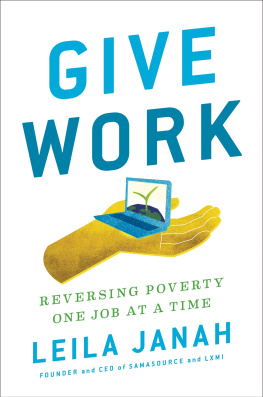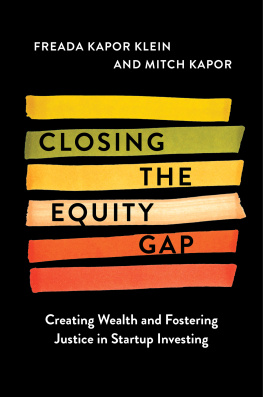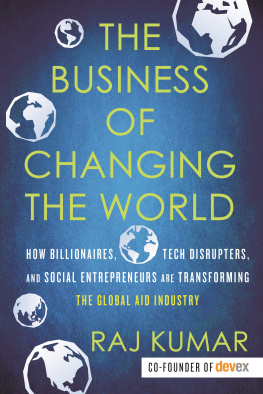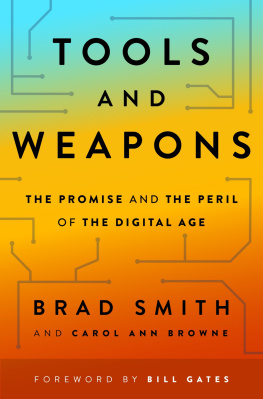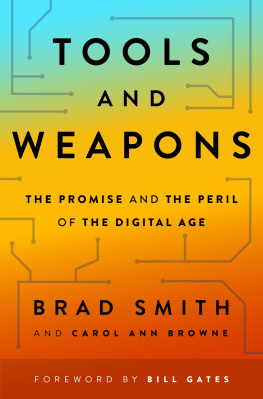Penguin supports copyright. Copyright fuels creativity, encourages diverse voices, promotes free speech, and creates a vibrant culture. Thank you for buying an authorized edition of this book and for complying with copyright laws by not reproducing, scanning, or distributing any part of it in any form without permission. You are supporting writers and allowing Penguin to continue to publish books for every reader.
While the author has made every effort to provide accurate telephone numbers, Internet addresses, and other contact information at the time of publication, neither the publisher nor the author assumes any responsibility for errors or for changes that occur after publication. Further, the publisher does not have any control over and does not assume any responsibility for author or third-party Web sites or their content.
INTRODUCTION
I N DECEMBER 2015, I was racing around, trying not to slip on the high-gloss floor of a Mission District tech incubator that had allowed me to use its gleaming contemporary space to host my very first un-gala. For years my nonprofit, Samasource, had thrown big, fancy black-tie parties to entertain and impress wealthy philanthropists so that they would support our mission to give living-wage work to the poorest people in the world via impact sourcinga company practice of intentionally hiring the destitute and marginalized. But we had finally decided there was something a little unseemly about spending three hundred thousand dollars to throw a party so people could get dressed up to talk about solutions to poverty. So we decided to scale back and hold an un-gala to raise money, inviting only our core hundred or so donors who we knew cared deeply about our cause. It would be free, casual, a lot less work for our staff, and, we hoped, still a lot of fun. The theme was Your First Job, and I was dressed as a 1990s legal secretary, which was how I earned my first paycheck back in high school. Hence the heels and the danger of slipping.
After dashing around, checking on the only decorations in the industrial, red-accented roomsmall, white floral centerpieces placed in the middle of a few cloth-covered bar tablesI went over to a group of my staff who were reviewing the guest list. As I leaned over their shoulders to see, I heard one of them say, Hey, does anyone know who this person is? Vanessa Kanyi?
I could not believe it.
Vanessa Lucky Kanyi was one of Samasources very first employees, a data-entry operator in Nairobi who had done transcription work for one of our early contracts for bestselling author Tim Ferriss. Prior to working with us, she had been slowly trying to earn a psychology degree at Mount Kenya University, living in a Nairobi slum while earning less than a dollar a day in a dead-end job. It was rough, she would say later. Its not money you can live on. At eighteen, she was, in fact, lucky to have a job at allyouth unemployment in Kenya hovers around 35 percent. Unofficially, its 70 percentin a place like Kenya where so many work in the informal economy, its hard to get concrete numbers.
It didnt take long for us to notice Vanessa at Samasource; she was a quick learner and did her job with speed and precision. When the Tim Ferriss job was done, Samasource connected her to a Canadian client who hired her as a virtual assistant. Over the three years she worked with Samasource, Vanessa was involved in increasingly complex projects, eventually moving into quality control, then becoming a supervisor and finally a manager overseeing a job that took her to West Africa. By then she was earning enough to complete her university degree, but she had reevaluated her priorities. It was kind of a funny conversation with myself, she says. School? I had a chance to go to West Africa! And now, unbelievably, she was in California on the guest list to our un-gala.
I was so excited I quickly grabbed my phone and called the number next to her name. She answered and good-naturedly answered my hundred questions. It turns out that in 2013, she was invited to speak at the fourth annual international Social Good Summit about how impact sourcing could help turn around youth unemployment rates in Africa. The Social Good Summit is a yearly three-day conference held during UN week in New York City where the likes of Malala Yousafzai, Melinda Gates, and more than two hundred of the worlds leading innovators and thinkers get together to discuss how technology can solve global problems. There, Vanessa explained to hundreds how the skills and opportunity shed gained through impact sourcing had changed her life and that of many others.
Inspired by her few days in New York CityI looked around and thought, Cool!she decided to apply for a scholarship at Santa Monica Community College in California, where she had a distant relative. She got it, and now she was living in Los Angeles working part time as a nursing assistant and getting a degree in engineering, which she had decided would serve her better in the short term than a degree in psychology. She had taken the day off from work and headed to the airport as soon as she was done with her morning class to be with us that night.
I confess that I put her on the spot that evening by asking her to do a short Q&A in front of our guests. She graciously agreed. Poised and elegant in her black suit, her hair pulled neatly back from her high, round forehead, she spoke slowly and softly about everything she had accomplished since shed left that first job that promised nothing but a hardscrabble day-to-day existence. She explained the difference impact sourcing made to slum dwellers, and how it gave them what they desperately neededa chance to make enough money to go to school, support their families, and even create a business. She revealed that she had developed a strong interest in philanthropy. I cant just sit around and watch everything crumble when I can do something about it.
It was an incredibly moving moment. Standing before us was a perfect example of what kind of talent is being wasted every day because of our tendency to dismiss the poor, and what they can achieve when given a fighting chance. Vanessa represented the culmination of everything we were trying to do at Samasource. In fact, she showed us our efforts had paid off beyond anything we could have imagined. Our original goal was to give people a chance to be productive, to escape their misery and move above the poverty line, but I dont think any of us anticipated the extent of what could happen once theyd crossed it. I looked over to see our board chair, Olana Khan, sobbing. I was crying, too, but not nearly as much as I would a few hours later, when I found out that Vanessa had made a $250 donation.
In 1964, Martin Luther King Jr. accepted the Nobel Peace Prize with the following words: I have the audacity to believe that peoples everywhere can have three meals a day for their bodies, education and culture for their minds, and dignity, equality, and freedom for their spirits. He gave that speech more than fifty years ago, and yet we are still a long way from achieving that goal. How can that be? Theres been no lack of effort; in that time the worlds richest countries have given more than $2 trillion in foreign aid to the worlds poorest. In 2015, the United States alone donated approximately $373 billion to charities, with 80 percent coming from individuals, not foundations or corporations, and a little more than $15 billion of that money going to international charities. If you ever needed proof that we do not live in an indifferent world, there it is. Still, despite the Wests best efforts and goodwill, around 10 percent of the global population struggles to survive on less than $2 per day (adjusted for purchasing power). Thats more than 2.8 billion people. Three hundred thousand women die annually in childbirth (the World Health Organization estimates that 99 percent of these deaths are preventable and due to poverty). Millions of children suffer brain stunting due to malnutrition (in India alone, this number is 54 million for children under five years of age); 783 million people live without clean water, and 2.5 billion dont have adequate sanitation.

